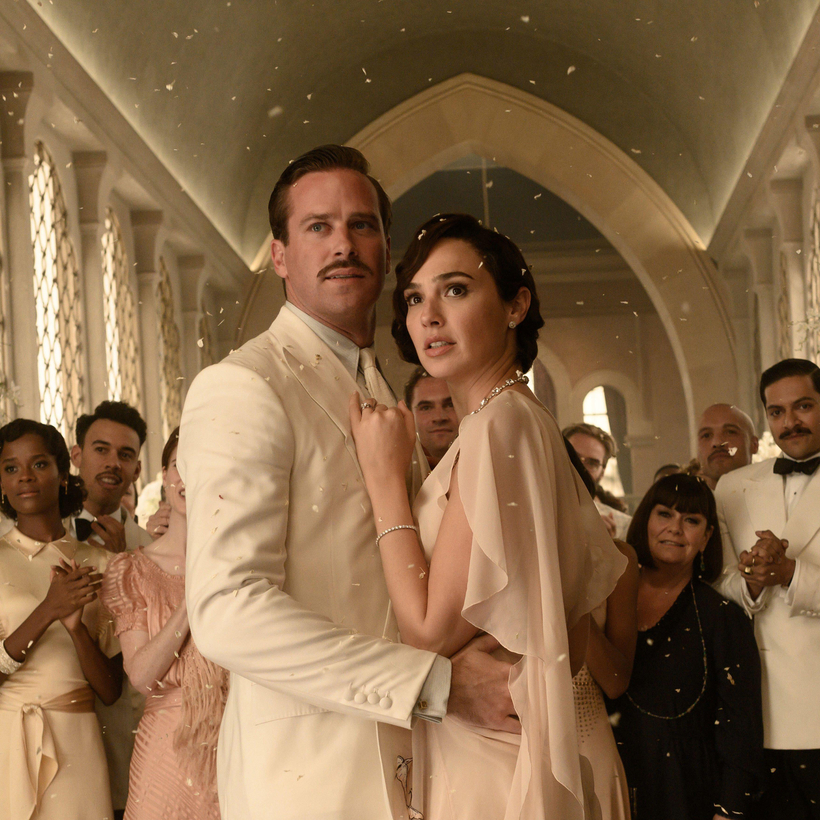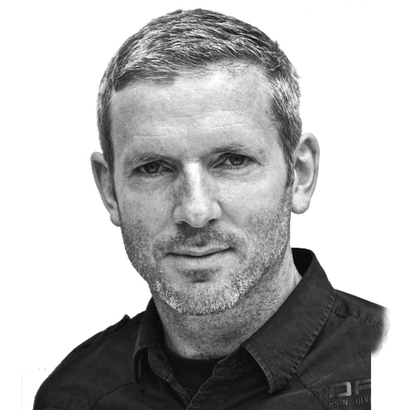Well, this is bold. After two years, and six release delays, the Disney movie Death on the Nile has committed to an opening date of February 11, and released a sumptuous, star-filled trailer that gives us an idea of how the studio is going to tackle the controversy surrounding the leading man Armie Hammer (hint: probably not at all).
The 35-year-old Call Me by Your Name star was accused last year of rape, as well as abusive, coercive behavior, including cannibalistic fantasies, with multiple extramarital partners. A police investigation into the rape allegation, which began in March, has now ended, according to the showbiz Web site TMZ, and the matter is in the hands of the district attorney. There is speculation that no charges will be brought. Hammer, who has denied all the accusations, was dropped, replaced or removed from all future projects. He was also dumped by his agents and publicist.

Disney, however, has soldiered on with its Agatha Christie adaptation, in which Hammer plays the unemployed smoothie Simon Doyle who can’t believe his good fortune when he snags wealthy heiress Linnet Ridgeway (here played by Wonder Woman star Gal Gadot). Murder ensues, and since Doyle is a prominent figure in the drama he typically features in the opening shots of the trailer, announced with the line, “Ladies and gentlemen, please welcome the newlyweds, Mr and Mrs Simon Doyle!”
The trailer’s other eyebrow-raising touch, which may have been unintentional, was to cut it to a remix of the Depeche Mode hit “Policy of Truth,” with its loaded and clearly audible lyric, “You had something to hide. Should’ve hidden it, shouldn’t you?” This is matched, near the trailer’s end, by the words, “It’s too late to change events, it’s time to face the consequence.”
The film is directed by Kenneth Branagh, who also stars as the Belgian super-detective Hercule Poirot. It is a sequel to Branagh’s 2017 Christie adaptation, Murder on the Orient Express, a movie that scooped nearly $350 million at the global box office on a modest budget of $53.6 million, which made it indecently profitable and an ace commercial launchpad for a Poirot franchise.
The 35-year-old Call Me by Your Name star was accused last year of rape, as well as abusive, coercive behavior, including cannibalistic fantasies.
The film’s production company, 20th Century Studios (bought by Disney in March 2019), released a statement to celebrate the trailer and the forthcoming release, announcing, “We’re so proud of this film, our brilliant cast, and the stellar work that went into bringing Death on the Nile to screen. We know that audiences can’t wait to experience Hercule Poirot’s next adventure … ” Hmmm. Provided, that is, that they ignore the great big flesh-eating elephant in the room that is the debacle swirling around the man in the costume and character of Simon Doyle.
And it was all going so well. In early 2019 Branagh, buoyed by the success of Murder on the Orient Express, was already reported to have been on location in Morocco, preparing to shoot the sequel, which was to be released that Christmas or, at the latest, the following October. But then he was dragged back to “fix” his misfired Harry Potter knockoff Artemis Fowl, and in the meantime production on Death on the Nile was delayed by six months, knocking the entire project right into the heart of the Hammer scandal. That broke in January last year, and reached a crisis point in March, when Hammer was accused of violently raping a woman named Effie in 2017, which was also denied by his legal team.

Hammer, as an actor and a Hollywood commodity, became immediately toxic. He was dropped from the Jennifer Lopez romantic comedy Shotgun Wedding and replaced with the American actor Josh Duhamel. He was axed from the TV series The Offer, about the making of The Godfather, and he stepped away from the Broadway play The Minutes and the thriller Billion Dollar Spy. Hammer was, in fact, deemed such a noxious presence that his previously shot scenes were removed from the Taika Waititi comedy Next Goal Wins and reshot with Will Arnett in his place.
And Death on the Nile? A statement? A decision? A reshoot? A recast? Nothing. The film just drifted quietly off the release schedules, lost in a slew of other high-profile titles — from Black Widow to No Time to Die — that were moved due to the shuttering of pandemic-hit cinemas.
And now? The marketing equivalent of “Move along, move along, nothing to see here, except the stellar work that went into bringing Hercule Poirot’s next adventure to the screen!” The closest the studio has come to making a statement was to exclude Hammer from the roll call of individual character posters — including Gal Gadot as “The Bride”, Branagh as “The Detective” and Annette Bening as “The Mother” — released as part of the promotional hype.
The Hollywood Reporter, meanwhile, claims that when the accusations broke regarding Hammer, the studio “considered” reshooting the movie with another actor, in the same way that Ridley Scott (also a producer on Death on the Nile) had reshot the Kevin Spacey scenes in All the Money in the World, replacing him with Christopher Plummer when Spacey was accused of sexual assault, which he denied. But it was deemed unfeasible.

Digital editing was also considered, according to an “insider”, where Hammer could have been replaced with another actor. But this was also deemed unfeasible. The final suggestion was that the film could be released directly to streaming, with no fanfare. But this would have ultimately been a disservice to, yep, the stellar work that went into bringing Hercule Poirot’s next adventure to the screen.
And Death on the Nile? A statement? A decision? A reshoot? A recast? Nothing.
The unfeasibility, or not, of these options is a moot point that will be debated throughout the film’s theatrical life and will doubtlessly cause many headaches for the Disney marketing machine on the forthcoming Death on the Nile media tour. “Don’t Mention the Hammer!” will surely be the guiding principle (can’t wait to watch Graham Norton squirm his way around that one).
But there are precedents here, and the job of replacing a performer, after the work is done, is not just a Hollywood anomaly but a recognized part of the process. From Buddy Ebsen being replaced in The Wizard of Oz in 1939 after an allergic reaction to the Tin Man makeup to Oliver Reed’s extra scenes in Gladiator, inserted digitally after his death, this happens. Actors can be replaced at any time. It is never, in short, and contrary to the words of Depeche Mode, too late to change events. All you need is the time, the budget and the will. Which one was missing here? Only Poirot knows.
Kevin Maher is the chief film critic for The Times of London and the author of two novels, The Fields and Last Night on Earth

